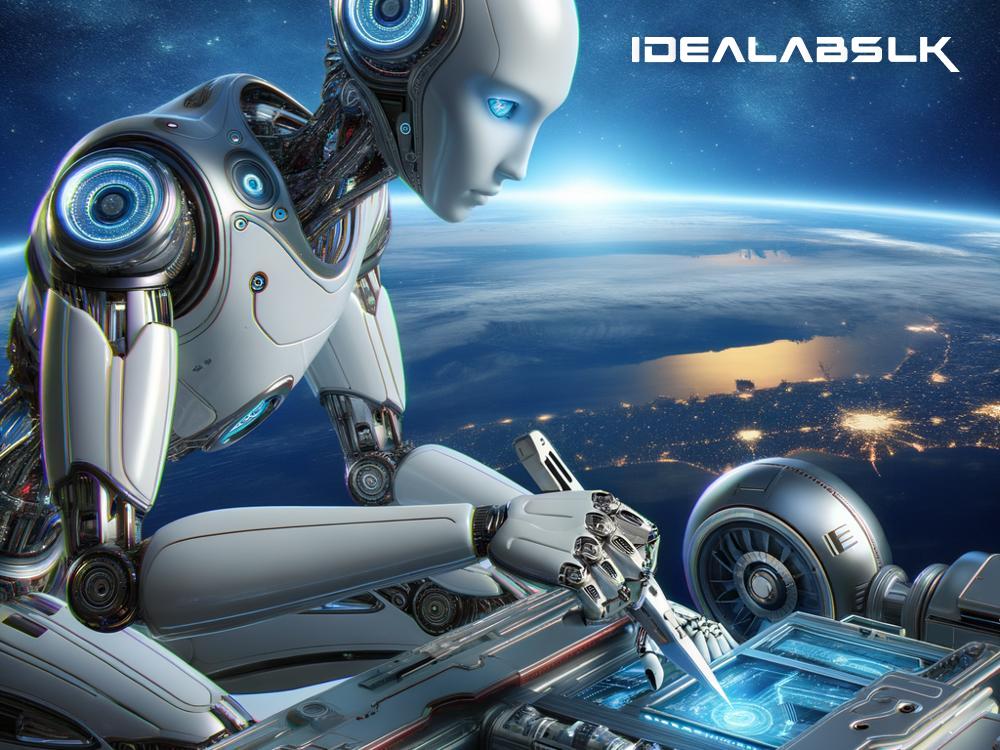The Future of Space Exploration: A Voyage with AI and Machine Learning
Space, the final frontier, has always fascinated humanity. From ancient astronomers to modern astronauts, the quest to explore beyond our blue planet has been relentless. However, the vastness and complexity of space present challenges that are often beyond human limitations. Enter Artificial Intelligence (AI) and Machine Learning (ML) – two revolutionary technologies set to redefine space exploration in the next decade.
The Role of AI and ML in Future Space Missions
AI refers to machines or software mimicking human intelligence, making decisions, and solving problems. Machine learning, a subset of AI, enables machines to learn from data and improve over time. Together, they are about to bring an unprecedented level of efficiency, safety, and discovery to space exploration by 2024.
Navigating the Unknown
One of the most daunting aspects of space exploration is the navigation and operation in uncharted territories. AI can process vast amounts of data from space sensors and instruments in real-time, making split-second decisions that would take humans significantly longer. These AI-driven systems can autonomously navigate spacecraft, avoiding obstacles like space debris and adjusting routes. This agility not only reduces the risk of missions but also allows exploration of more distant or complex astronomical objects.
Robotic Explorers
Robots have been our primary way to explore planets, moons, and asteroids. With advancements in AI and ML, the next generation of space robots will be much smarter and more autonomous. These robots can analyze their surroundings, conduct experiments, and even decide what information is interesting enough to send back to Earth. This level of autonomy is crucial for exploring places like Mars, where communication delays with Earth can span up to 22 minutes.
Analyzing Cosmic Data
The data from space missions are vast and complex, often taking years for scientists to fully understand. ML algorithms excel at finding patterns in massive datasets, identifying phenomena that humans might overlook. By processing and analyzing cosmic data more efficiently, AI can accelerate our understanding of the universe. This means faster identification of planets similar to Earth, understanding cosmic phenomena, and even spotting potential threats like asteroids on collision courses with Earth.
Enhancing Satellite Operations
Satellites play a crucial role in our daily lives, from weather forecasting to global communication. AI can optimize satellite operations, enhance the quality of data collected, and reduce operational costs. For instance, ML algorithms can predict satellite malfunctions or system failures before they happen, allowing preemptive maintenance. This reliability and efficiency are critical for both Earth-based applications and more distant space missions.
Personal Assistants for Astronauts
As we plan longer missions, including potential trips to Mars, astronaut health and productivity become a concern. AI-driven personal assistants could monitor the health of astronauts, manage schedules, and even provide psychological support. These assistants can also assist in complex scientific research and experiments, reducing the workload on astronauts and improving mission outcomes.
Overcoming Language Barriers
One futuristic, yet plausible, aspect of AI in space exploration is the potential to communicate with extraterrestrial intelligence. While the existence of such intelligence is yet to be confirmed, AI could play a crucial role in deciphering non-human languages, offering a bridge between vastly different civilizations.
The Challenges Ahead
Despite the promise of AI and ML in space exploration, there are challenges. Reliability in the harsh environment of space, ethical considerations around autonomous decision-making, and the potential for technology failure are significant concerns. Additionally, there’s the risk of creating a dependency on technology that could be detrimental in long-term space colonization efforts.
The Next Decade: A New Era of Exploration
By 2024, we can expect AI and ML to become integral to space missions. From autonomous spacecraft navigating the cosmos to intelligent robots exploring alien terrains, the potential is boundless. These technologies will not only make missions safer and more efficient but will also deepen our understanding of the universe.
In conclusion, AI and ML are about to revolutionize space exploration, propelling humanity into a new era of discovery. As we stand on the brink of these exciting advancements, one thing is clear: the future of space exploration is bright, and it’s smarter than ever.

